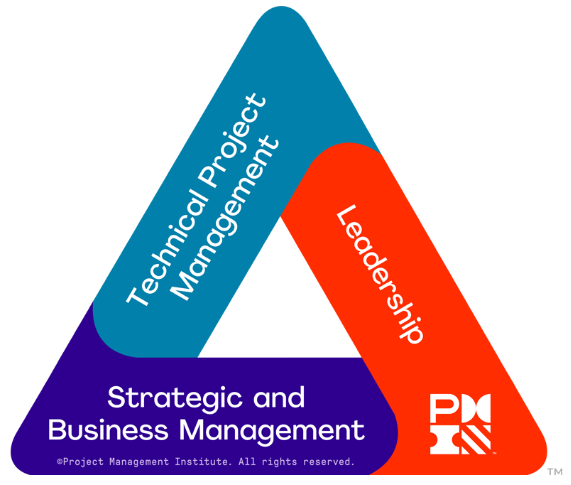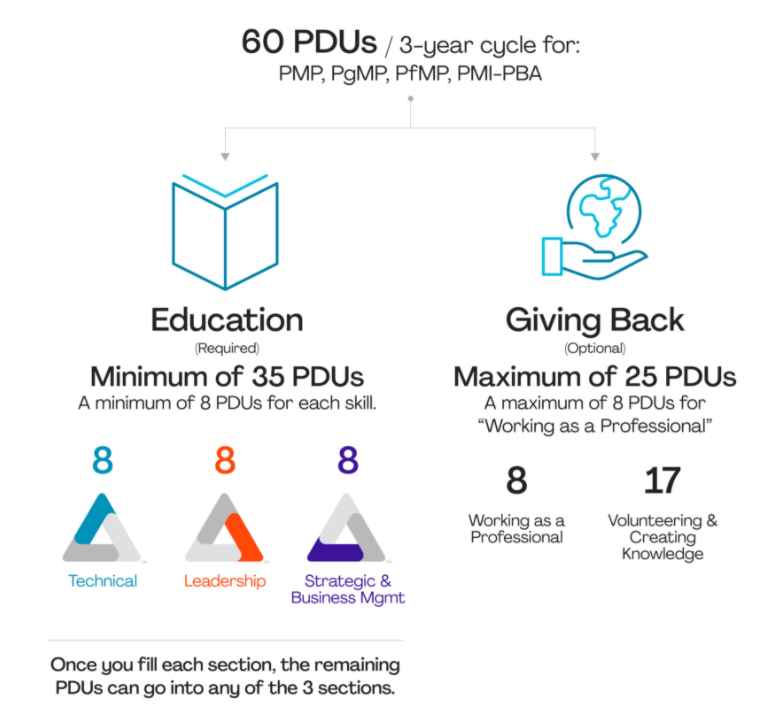When it comes to the PMP certification, we frequently hear terms like “Contact hours” and “PDUs”. But, we often get confused about their meaning and use. In this article, we are going to clear up any ambiguity concerning these two terms and their role in the certification process.
The first and most recognizable distinction is that while “Contact hours” must be accumulated as a prerequisite to be eligible for applying for the certification, “PDUs” on the other hand, must be earned after obtaining your PMP credential over a three-year period in order to maintain your certification.
Contact Hours
Contact hours are one of the prerequisites for taking the PMP certification exam. The PMI has determined that in order to register for the PMP exam, all candidates must meet certain requirements, including that they must complete 35 hours of training (35 contact hours). The PMI defines them as: “1 contact hour = 1 hour of training received.”
Whether it’s provided by an Approved Training Partner (ATP) or any other training source, the 35 Contact Hours get automatically approved by the PMI. In case your PMP application is selected for audit, you need to present the training completion certificate to approve your compliance with the 35 contact hours requirement.
PDUs
PDUs (Professional Development Units) are hourly blocks of time that a PMP-certified professional is required to acquire through training, studying, teaching, or volunteering in order to renew their credential. By accumulating 60 PDUs over the period of three years, you will be able to maintain your PMP certification without having to take the exam again.
There are two types of PDUs: Education PDUs and Giving Back PDUs. To retain the PMP certification, a minimum of 35 Education PDUs and a maximum of 25 Giving Back PDUs are required. This means that you can renew your certification with 60 Education PDUs and 0 Giving Back PDUs, but not the other way around (i.e. 0 Education PDUs and 60 Giving Back PDUs).
Education PDUs
This type of PDUs can be accumulated by attending webinars, seminars, conferences, or even personal training. With the field of project, program, and portfolio management constantly evolving and changing, PMI believes it is important for all PMP Certified Professionals to keep their knowledge up to date and try to stay current with market changes.
Giving Back PDUs
These PDUs cover volunteering, teaching, or working on projects. Accumulating Giving Back PDUs helps you increase your knowledge and skills as well as grow professionally. While they are not required to maintain your PMP certification, Giving Back PDUs are a great way to broaden your career opportunities and advance your position inside the company.
The PMI Talent Triangle and PDUs
The PMI Talent Triangle outlines the skills required for a project manager, breaking them down into three main categories:
- Technical skills
- Leadership skills
- Strategic and Business management skills

To maintain your PMP certification, you’ll need to work on these specific skill sets since the PMI requires that out of 35 Education PDUs, at least 8 must be earned in each of the 3 skill areas.
The following is the acquisition scheme for the 60 PDUs required to maintain the PMP certification:

Check out our “How to get 35 contact hours for PMP?” guide for more details on how to acquire this prerequisite to be eligible for the exam.
Photo credit: PMI.org
